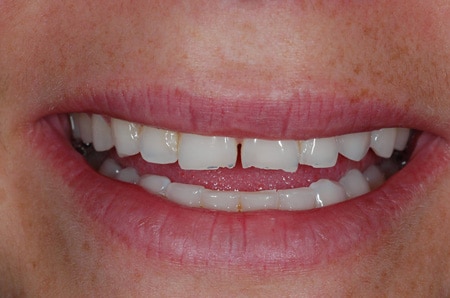Having a chipped tooth can be a painful and annoying experience. The rough edge of your chipped tooth can cause discomfort and pain in your mouth and it can affect your ability to eat comfortably.
You can chip a tooth by falling, playing sports, or biting down too fast on hard food. No matter how you do it, the only thing you can focus on afterward is getting it fixed.
The enamel on your teeth is strong and can resist wear and minor bumps. But even though it is a tough coating meant to protect your teeth, it can sometimes fail, resulting in a chipped or broken tooth.
What to do if you have a chipped or broken tooth
The most important thing to do if you have a chipped or fractured tooth is to contact your dentist as soon as possible. They’ll want to see you as soon as they can to avoid the tooth becoming more damaged, infected, or possibly losing the tooth.
Once you’ve scheduled an appointment with your dentist to fix the tooth, you can try some of these self-care tips to reduce your pain and try to save the tooth:
- To reduce pain, you can try to take an over the counter pain reliever.
- If there is a sharp or rough edge where the tooth broke, try to avoid messing with it with your tongue or gums. This will help to reduce discomfort or irritation around your gums and tooth.
- Avoid eating hard or tough to chew foods, and definitely avoid biting down on the broken tooth.
Your dentist will decide the best course of treatment for your broken tooth depending on how severely the tooth is damaged. This can range from bonding, which uses a tooth-colored resin to build the tooth back up and look natural, to a dental cap or crown for larger breaks.


